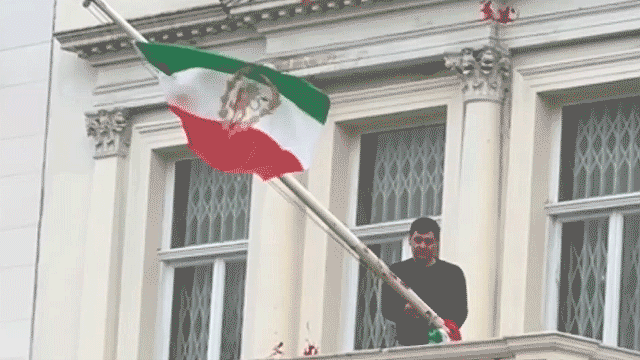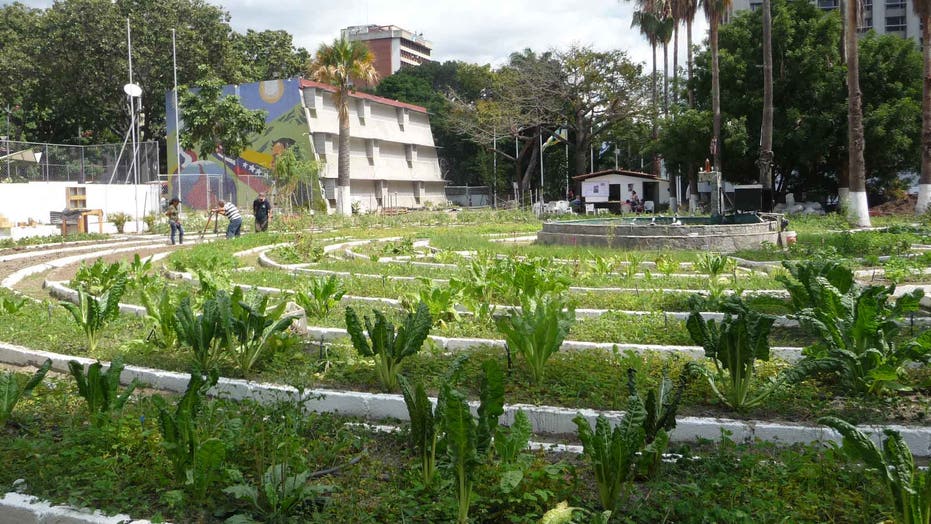Caracas – Amid the worst economic crisis Venezuela has faced in decades, the self-described "revolutionary" government led by President Nicolas Maduro has set in motion a revolutionary idea to solve the acute food shortages: let’s become producers at home.
“Cilia and I have 50 chickens in our house,” said Maduro recently, referring to his wife. “It’s time to develop a new culture of production,” he added, before announcing the creation of yet another ministry called the Urban Farming Ministry.
The new institution is headed by Emma Ortega, a left-wing and colorful activist known to be a longtime friend of President Maduro.
“People have to solve the current emergency cultivating in any available space,” she said this week during a first meeting of urban farmers in Caracas. “We just need sun, water and a lot of hearth. Currently our cities are just food consumers and parasites,” she noted.
Ortega, who likes to sing during public events, doesn’t hide her hard feelings toward the United States either.
“If a gringo comes here, we have to beat him with a stick. If we just have a pencil, we have to poke him in the eyes,” said the 62-year-old farmer and ceramist back in March of 2015, after the U.S. sanctioned seven Venezuelan government officials for their alleged violation of human rights.
In the past few years, Venezuela has grown increasingly dependent on food imports to cover the needs of its 30 million people. But the dramatic drop in oil prices greatly reduced its purchasing power, which explains the persistent scarcity of the most basic goods and the snaky lines all over the country.
The socialist government is offering workshops and classes to enlighten those who know nothing about farming. In an interview with Fox News Latino, Maria Jimenez, a field technician with the government-run Siare Foundation, explained that all that is required is “any available place at your house with enough light.”
“In a balcony you can cultivate in self-made wooden tables or in bottles,” she said. “You can grow tomatoes, chives, cayenne, pepper and much more.”
One of the few urban farming initiatives already underway in Caracas is the Bolivar’s Crops Center, a 27,000 square-foot area located in the middle of downtown. It was refurbished in 2015 and pro-government groups are now growing 20 different produce there, from lettuce and spinach to tomato, onions and some medicinal plants.
According to Minister Ortega, the goal is to extend urban farming to every neighborhood of Venezuela’s urban areas.
“If a building has 120 apartments and they all have crops, they could even exchange the different produce they grow,” she said.
But not everybody is so upbeat about the plan.
“Venezuela’s food production problems will not be solved with urban farming. They are caused by macroeconomic imbalances that need to be corrected,” said Tomas Socias, economist and former president of Venezuela’s Chamber of Food Industry.
Socias argued that the price controls currently in place for certain goods has to be lifted and that the government needs to subsidize producers who are idle due to their inability to import resources.
“Ninety percent of the products made here need foreign raw material. That requires dollars and for that the government has to stop importing food to activate the national production again,” the expert said.
Socias also thinks that the creation of new ministries is pointless at a time when the government should be cutting spending.
Along with the Urban Farming Ministry, Maduro announced the creation of the Departments of Marine Life and Fisheries, and the Department of Agricultural Production and Land.
“These three ministries could work as one,” Socias suggested.
Ortega admitted to FNL that the urban farming plan requires important improvements. For starters, there is no official registry of the farming activity in urban areas.
“That’s is why we are meeting today,” Ortega said before Tuesday’s event.








































